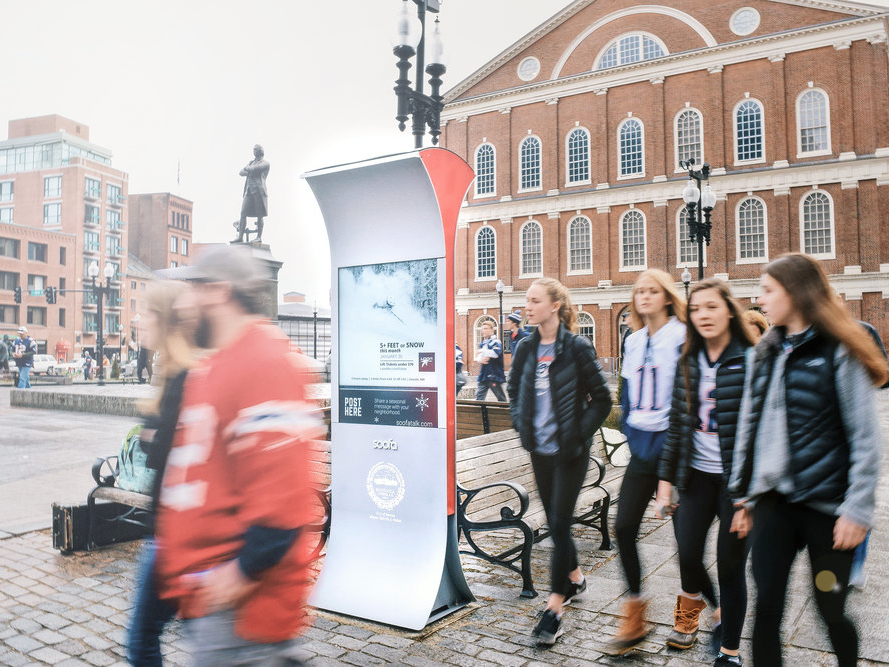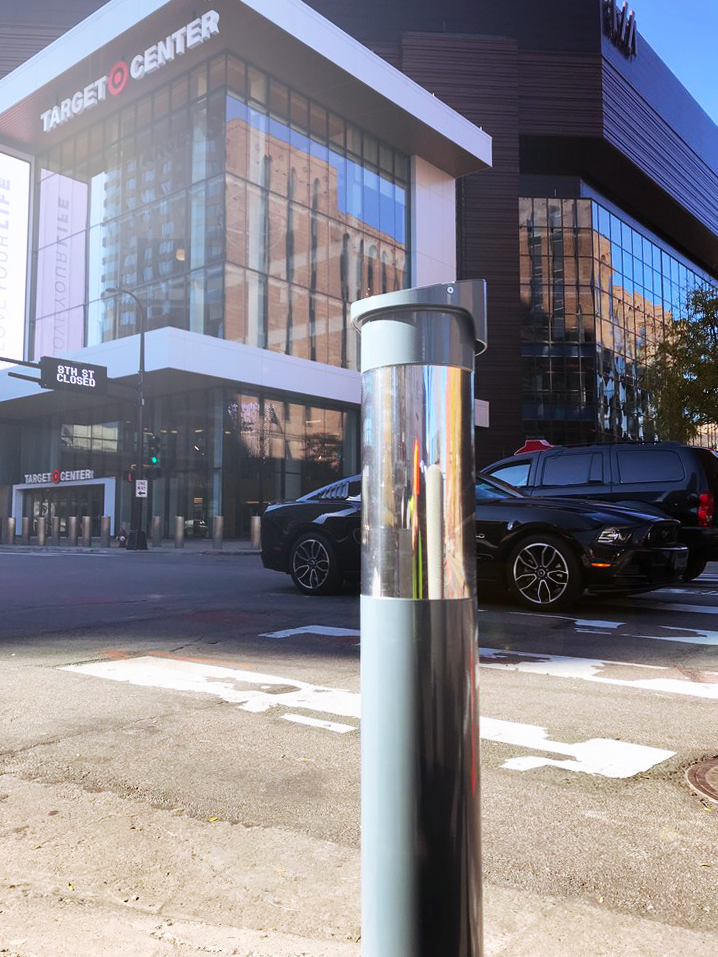Soofa Signs
Digital sidewalk displaysSoofa is a Boston-based, female founded company that launched out of MIT and Harvard in 2014. Beyond Beta Blocks, Soofa Signs can be found in Allston, Ashmont, Fenway, and the Seaport. Soofa Signs are ~5.5 foot tall black and white digital bulletin boards, with exteriors that can be branded with vinyl stickers. The Signs are solar-powered, wireless, and zero emission, with e-ink screens that anyone can post to. To post something, visit <https://talk.soofa.co/> and create an account. Then, upload your content, select your target neighborhood, and submit. A Soofa employee reviews the submissions for quality and appropriateness. Within ~15 minutes, your content will be posted or returned with requested changes. An algorithm determines how content is displayed, and newer Signs tend to have more community content. At least 20% of content is submitted by communities (mainly businesses and City Departments), and the rest is paid advertisements. Soofa makes money from the advertisements on its Signs. The City of Boston does not pay for equipment, maintenance, or reporting. After a Sign is paid off through its ads, Boston makes 20% of subsequent ad revenue. Soofa observes non-identifiable data, consisting of the manufacturers, signal strengths, and media access control (MAC) addresses, from Wi-Fi enabled mobile devices passing within ~15 feet of Signs. Soofa further anonymizes observed MAC addresses with a cryptographic function before analyzing the data and providing aggregate anonymous information to customers (such as cities). For example, Soofa may share non-identifiable information such as how many people visit a park, how long people stay, and what sections of the park are popular. Collected data is not sold and remains with the City or land-owner partner.
soofa.co







